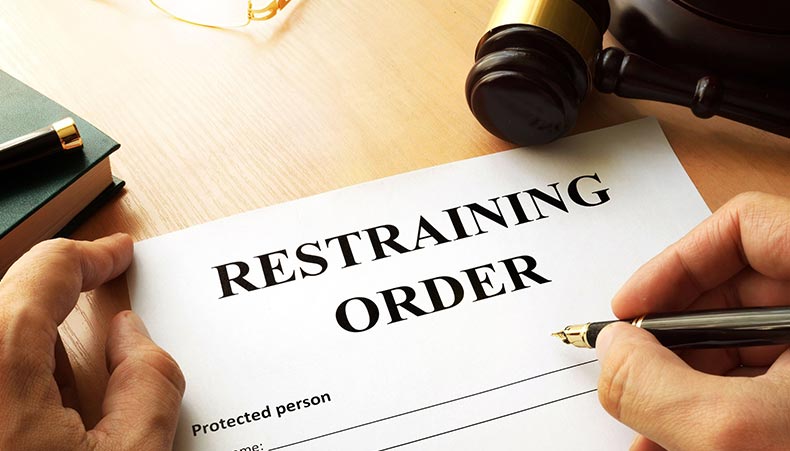
A protective order or restraining order is a legal tool to protect individuals and families from stalking, harassment, or violence. Here’s an overview of what these orders mean in Georgia, how to file for one, and what to do if you are the target of such an order.
A “restraining order” in Georgia is an order prohibiting certain parties from doing certain things. For example, it may ban a person from owning or purchasing firearms. These orders are typically temporary (hence the term temporary restraining order or TRO), and the person subject to a TRO may seek a hearing to tell the court their side of the story.
On the other hand, a “protective order” is meant to shield a person or persons from violence or harassment. In Georgia, when people say they need a restraining order against someone they know, they usually mean a protective order. Georgia protective orders protect against two types of aggression: family violence and civil stalking. Either type of order may cover you, your children, your other family members, your romantic partner, and even your roommate.
If you’re seeking protection against family violence, two types of protective orders are available. First, an “ex parte order,” also known as a temporary protective order (TPO), is a short-term protection lasting 30 days. You may obtain this order quickly as it is meant to provide immediate protection from danger, such as in situations of domestic abuse.
After this, you may petition the court for a “family violence protective order,” which can last one to three years. If your protective order expires and you still feel threatened, you may ask the court to renew the order.
When seeking a protective order, you’ll need to prove to the judge that you or your loved ones are facing any of the following:
Georgia’s Family Violence Act guarantees that you can file for a protective order at no cost. You may consult with a lawyer separately to learn your next steps regarding your family situation.
These are the basic steps to get a protective order in Georgia:
If a family member is seeking a family violence protective order against you, it’s crucial for you to get an attorney who can protect you from unfair consequences. Listen to your lawyer’s counsel as any mistake during this precarious period could lead to jail time and fines.
The judge will call for a full hearing where you have the opportunity to present your side of the story. Work with your attorney to build a compelling case in your defense.
If the court grants the protective order against you, you must strictly comply with its terms. In Georgia, violating a family protective order is a misdemeanor, punishable with a maximum of 12 months in jail and a $1,000 fine.
You can ask the court to modify or adjust the order. One way to do this is to request a hearing where the judge decides on order modification. Another way is to come to an agreement with the other party. It’s not uncommon for family members to calm down and want to get back together even while a protective order is in effect. If this happens, you may negotiate with the other party for a consent agreement, which you can then submit to the court for approval.
However, bear in mind that reaching out to the other party first could put you at risk of criminal consequences. Speak with an attorney before taking any step that could violate the protective order.
Attorney Sharon Jackson is highly experienced in untangling complicated Family Law issues in Gwinnett County and throughout Georgia. Whether you are in need of a protective order or such an order is in place against you, Ms. Jackson can help protect your rights.
Call us today at (678) 909-4100.
Attorney Sharon Jackson LLC
175 Langley Drive, Suite A1
Lawrenceville, GA 30046
Phone: (678) 909-4100